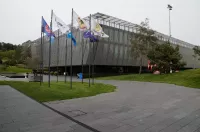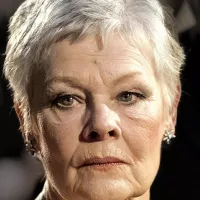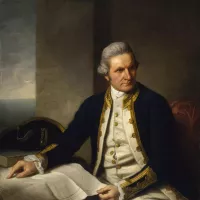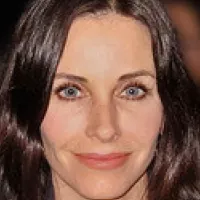Ecuador is a South American country situated in the northwest, bordering Colombia to the north, Peru to the east and south, and the Pacific Ocean to the west. It encompasses the Galápagos Islands, located approximately 1,000 kilometers west of the mainland. Quito serves as the capital city, while Guayaquil is the largest.
May 1904: Tobar-Rio Branco Treaty Signed
On May 6, 1904, Ecuador signed the Tobar-Rio Branco Treaty, recognizing Brazil's claims to the Amazon in return for Brazil's recognition of Ecuador's claim as an Amazonian country.
1904: Territorial Loss to Brazil
In 1904, Ecuador lost contested territories to Brazil through a series of peace treaties.
1910: Border Dispute Arbitration with Spain Fails
In 1910, the border dispute between Ecuador and Peru, submitted to Spain for arbitration in 1880, remained unresolved.
1911: Concession to Anglo Ecuadorian Oilfields in 1911
In 1911, the Government of Ecuador conceded 98 mines to the British oil company Anglo Ecuadorian Oilfields.
July 1916: Muñoz Vernaza-Suarez Treaty Signed
On July 15, 1916, the Muñoz Vernaza-Suarez Treaty was signed, recognizing Colombian rights to the Putumayo River and Ecuadorian rights to the Napo River, establishing a new border between them.
1916: Territorial Loss to Colombia
In 1916, Ecuador lost contested territories to Colombia as part of its history of losing territories to more powerful neighbors.
1920: Air Academy Cosme Rennella Founded
Around 1920, the Air Academy Cosme Rennella was founded in Salinas, Ecuador.
1921: Emergency Quota Act of 1921
The Italian government came to be more interested in the emigration phenomenon in Ecuador because of the necessity of finding an outlet for the large number of immigrants who traditionally went to the United States but who could no longer enter this country because of the Emergency Quota Act of 1921 that restricted immigration of Southern and Eastern Europeans as well as other "undesirables".
March 1922: Salomon-Lozano Treaty Signed
On March 24, 1922, the Salomon-Lozano Treaty was signed between Colombia and Peru, which Ecuador protested because it ceded Ecuadorian claimed land to Peru.
July 1924: Ponce-Castro Oyanguren Protocol Signed
On July 21, 1924, the Ponce-Castro Oyanguren Protocol was signed between Ecuador and Peru, agreeing to direct negotiations and arbitration by the United States to resolve their dispute.
1925: Julian Revolution
In 1925, the military "Julian Revolution" ended the rule of the liberal wing that had been in power since the Liberal Revolution of 1895.
1930: Lebanese immigrants in 1930
By 1930, there were 577 Lebanese immigrants and 489 of their descendants residing in Ecuador.
1933: Arrival of Ashkenazi Jews in 1933
Ashkenazi Jews arrived in Ecuador mostly as refugees after the ascendance of National Socialism in Germany in 1933.
September 1935: Negotiations Begin in Washington
On September 30, 1935, negotiations between Ecuadorian and Peruvian representatives began in Washington to resolve their dispute.
1936: Compulsory Voting Law
Since 1936, voting has been compulsory for all literate persons aged 18–65 in Ecuador.
September 1937: Negotiations Break Off
On September 29, 1937, the Peruvian representatives broke off negotiations with Ecuador, ending seven months of arguments.
1939: Ecuador admits Jewish refugees in 1939
In 1939, Ecuador granted entry permits to 165 Jewish refugees from Germany aboard the ship Koenigstein, after several South American countries refused them.
1940: Jewish population in 1940
In 1940, there were 3,000 Jews in Ecuador.
July 1941: Outbreak of War with Peru
In July 1941, war broke out between Ecuador and Peru amid tensions over disputed territories around the Zarumilla River. Hostilities began on July 5, 1941, with Peruvian forces crossing the Zarumilla River. A major invasion followed on July 23, 1941, with Peru advancing into the Ecuadorian province of El Oro.
January 1942: Rio Protocol Signed
On January 29, 1942, Ecuador and Peru signed the Rio Protocol, formalizing an accord that favored Peru with the territory it occupied at the time, under pressure from the United States and other Latin American nations.
1942: Territorial Loss to Peru
In 1942, Ecuador lost contested territories to Peru after a short war, which resulted in the signing of the Protocol of Rio de Janeiro.
1944: Glorious May Revolution
In 1944, the Glorious May Revolution, a military-civilian rebellion and civic strike, successfully removed Carlos Arroyo del Río from Ecuador's government.
1950: Peak of Jewish population in 1950
At its peak, in 1950, the Jewish population of Ecuador was estimated at 4,000.
1950: Infant mortality rate in 1950
The infant mortality rate in Ecuador was 140 per 1,000 live births in 1950.
1964: Texaco Operations Begin in Ecuadorian Amazon
In 1964, the American oil company Texaco (later Chevron) began operations in the Ecuadorian Amazon region.
1967: Public health care system established in 1967
The current structure of the Ecuadorian public health care system dates back to 1967.
1972: Military Junta Overthrows Velasco Ibarra
In 1972, a "revolutionary and nationalist" military junta overthrew the government of Velasco Ibarra, leading to his exile to Argentina.
1972: Andean Pipeline Completed
In 1972, the construction of the Andean pipeline was completed, making Ecuador South America's second largest oil exporter.
1973: Ecuador joins OPEC
In 1973, Ecuador joined the Organization of the Petroleum Exporting Countries (OPEC).
1976: Another Military Government Takes Power
In 1976, the military government led by General Guillermo Rodríguez was removed by another military government led by Admiral Alfredo Poveda.
April 1979: Jaime Roldós Aguilera Elected President
On April 29, 1979, Jaime Roldós Aguilera was elected president under a new constitution, garnering over one million votes.
1980: Founding of Partido Pueblo, Cambio y Democracia
In 1980, Jaime Roldós Aguilera founded the Partido Pueblo, Cambio y Democracia (People, Change, and Democracy Party).
February 1981: Paquisha Incident
In January–February 1981, a border skirmish known as the Paquisha Incident occurred between Ecuador and Peru.
May 1981: Death of Jaime Roldós Aguilera
On May 24, 1981, President Jaime Roldós Aguilera died in a plane crash near the Peruvian border along with his wife and the minister of defense Marco Subia Martinez.
1984: León Febres Cordero Elected President
In 1984, León Febres Cordero from the Social Christian Party was elected president of Ecuador.
1986: Lebanese descendants estimate in 1986
A 1986 estimate from Lebanon's Ministry of Foreign Affairs stated 100,000 Lebanese descendants residing in Ecuador.
1988: Rodrigo Borja Cevallos Wins Presidency
In 1988, Rodrigo Borja Cevallos of the Democratic Left (Izquierda Democrática, or ID) party won the presidency.
1991: Speakers of Northern Kichwa in 1991
In 1991, Northern Kichwa (Quechua) and other pre-colonial American languages were spoken by 2,500,000 people in Ecuador.
1992: Texaco Operations End in Ecuadorian Amazon
In 1992, Texaco (later Chevron) ended its operations in the Ecuadorian Amazon region after drilling 339 wells and abandoning 627 toxic wastewater pits.
January 1995: Cenepa War
In January 1995, full-scale warfare, known as the Cenepa War, erupted between Ecuador and Peru, with each country blaming the other for the onset of hostilities.
1996: Net Primary Enrollment Rate
In 1996, the net primary enrollment rate in Ecuador was 96.9%, with 71.8% of children remaining in school until the fifth grade or age 10.
1996: First Olympic Medal
In the 1996 Summer Olympics in Atlanta, Jefferson Pérez won Ecuador's first Olympic medal, a gold in the 20 km walk.
October 1998: Brasilia Presidential Act Signed
On October 26, 1998, Ecuador and Peru signed the Brasilia Presidential Act peace agreement, ending hostilities and the Western Hemisphere's longest running territorial dispute.
May 1999: Final Border Demarcation
On May 13, 1999, the final border demarcation between Ecuador and Peru came into effect.
June 1999: MOMEP Troop Withdrawal
On June 17, 1999, the multi-national MOMEP (Military Observer Mission for Ecuador and Peru) troop deployment withdrew.
1999: GDP Doubled
Between 1999 and 2007, Ecuador's GDP doubled.
1999: Opposition Parties Gain Control of Congress
In 1999, opposition parties gained control of Congress amidst continuing economic problems.
1999: Extreme poverty rate decline starts in 1999
The decline of extreme poverty rate in Ecuador started in 1999.
April 2000: Adoption of the U.S. Dollar
On April 13, 2000, Ecuador adopted the U.S. dollar as its national currency to stabilize the country's economy.
2000: Adoption of the U.S. dollar in 2000
Before 2000, the Ecuadorian sucre was prone to rampant inflation, and from 2000, the U.S. dollar was adopted as the official means of transaction.
2000: Average Growth Rate
Between 2000 and 2006, Ecuador's economy experienced an average growth of 4.6%.
2000: Health care efficiency ranking in 2000
Ecuador was ranked 111 in most efficient health care countries in the year 2000.
2001: Extreme poverty rate in 2001
In 2001, the extreme poverty rate in Ecuador was estimated at 40% of the population.
2002: Growth in Colombian and Venezuelan refugees from 2002
Starting from 2002, there has been an exponential and significant growth in Colombian and Venezuelan refugees in Ecuador.
2003: Amnesty International Report on Human Rights
A 2003 Amnesty International report criticized Ecuador for the scarce prosecutions of human rights violations committed by security forces and allegations of torture and abysmal prison conditions.
April 2005: Removal of President Lucio Gutiérrez
In April 2005, President Lucio Gutiérrez was removed from office by Congress due to government failures, historical exploitation, and destabilizing efforts. Vice President Alfredo Palacio succeeded him.
2006: Average Growth Rate
Between 2000 and 2006, Ecuador's economy experienced an average growth of 4.6%.
2006: Rafael Correa elected president
In 2006, Rafael Correa won the presidential election in Ecuador.
2006: Poverty Decreases
In 2006, poverty in Ecuador decreased from 36.7% to 22.5%, according to the Center for Economic and Policy Research.
2006: Trade balance compared to 2006
The trade balance surplus in Ecuador had risen by about $425 million compared to 2006.
January 2007: Rafael Correa's swearing-in ceremony
In January 2007, Rafael Correa's swearing-in ceremony was attended by several left-wing political leaders of Latin America, who would become his future allies.
April 2007: Ecuador pays off debt to the IMF in April 2007
In April 2007, Ecuador paid off its debt to the International Monetary Fund (IMF).
December 2007: Monthly unemployment rate
From December 2007 the monthly unemployment rate remained between 6 and 8 percent.
2007: Constituent Assembly Elected
In 2007, an Ecuadorian Constituent Assembly was elected to write a new constitution.
2007: Trade balance surplus in 2007
The trade balance surplus for Ecuador in 2007 reached only $5.7 million.
January 2008: Inflation Rate
Until January 2008, Ecuador's inflation rate was about 1.14%, the highest in the past year according to the government.
September 2008: Monthly unemployment rate
Until September 2008 the monthly unemployment rate remained between 6 and 8 percent.
November 2008: Monthly unemployment rate
In November 2008, the unemployment rate dropped again to 8 percent.
December 2008: Correa Declares National Debt Illegitimate
In December 2008, President Correa declared Ecuador's national debt illegitimate, arguing it was odious debt. He announced the country would default on over $3 billion in bonds and successfully reduced the price of outstanding bonds by fighting creditors in international courts.
2008: Free basic health care since 2008
Basic health care, including doctor's visits, basic surgeries, and basic medications, has been provided free in Ecuador since 2008.
2008: Rise in returning nationals during the 2008 economic crisis
Ecuador experienced a rapid and significant rise in the flow of returning nationals, most notably during the 2008 economic crisis that affected Europe and North America.
2008: New Constitution Recognizes Rights of Nature
In 2008, Ecuador's new constitution became the first in the world to recognize legally enforceable rights of nature, acknowledging its unique ecological heritage.
2008: LDU Quito Runners-Up in FIFA Club World Cup
In 2008, LDU Quito became runners-up in the FIFA Club World Cup.
2008: Sociobosque Program Begun
In 2008, the Sociobosque program was initiated in Ecuador to preserve land by providing incentives to private and community landowners to maintain native ecosystems.
2008: Universal social security coverage introduced in 2008
In 2008, the government introduced universal and compulsory social security coverage in Ecuador.
2008: New Constitution Approved
In 2008, the new constitution written by the Ecuadorian Constituent Assembly was approved by referendum.
2008: Oil trade balance revenues in 2008
In 2008, the oil trade balance in Ecuador had positive revenues of $3.295 million, while the non-oil balance was negative, amounting to $2.842 million.
2008: Poverty reduction through social spending from 2008
Starting in 2008, the reduction of poverty in Ecuador has been realized through social spending, mainly in education and health, due to the bad economic performance of countries where most Ecuadorian emigrants work.
January 2009: Central Bank of Ecuador Growth Forecast
In January 2009, the Central Bank of Ecuador (BCE) forecast a growth rate of 6.88% for 2010.
June 2009: Ecuador Joins Bolivarian Alliance for the Americas
In June 2009, under the leadership of Rafael Correa, Ecuador joined the Bolivarian Alliance for the Americas (ALBA).
2009: Restructuring of Armed Forces
In 2009, the new administration at the Defense Ministry launched a deep restructuring within the Ecuadorian Armed Forces, increasing the budget by 25%.
2010: Ethnic group percentages in 2010
As of 2010, the largest ethnic group in Ecuador is the Mestizos, who constitute about 71% of the population.
2010: Unemployment Rate
In 2010, Ecuador's unemployment rate was 7.6%.
2010: Poverty decline between 1999 and 2010
The extreme poverty rate in Ecuador declined significantly between 1999 and 2010.
2011: Oil reserves estimated at 6.51 billion barrels in 2011
As of 2011, proven oil reserves in Ecuador were estimated at 6.51 billion barrels.
2011: Extreme poverty rate declines by 2011
By 2011, the extreme poverty rate in Ecuador had dropped to 17.4% of the total population, a significant decrease from 2001.
2011: GDP Growth
In 2011, Ecuador's GDP grew at 8% and ranked third highest in Latin America.
August 2012: Trade balance surplus in August 2012
The overall trade balance for August 2012 was a surplus of almost $390 million for the first six months of 2012.
2012: Latter-day Saints members in 2012
According to estimates, The Church of Jesus Christ of Latter-day Saints accounts for about 1.4% of the population in Ecuador, or 211,165 members at the end of 2012.
2012: Unemployment Rate
In 2012, Ecuador's unemployment rate was 4.8%.
2012: Restrictions on Media and Public Protest
In the first half of 2012, twenty private TV or radio stations were closed down in Ecuador, and individuals engaging in public protests faced prosecution for "terrorism and sabotage".
February 2013: Inauguration of new Quito airport in February 2013
A new airport for Quito was inaugurated in Tababela in February 2013, with Canadian assistance.
2013: Ecuador's technology innovation ranking in 2013
In 2013, Ecuador was placed in 96th position of innovation in technology in a World Economic Forum study.
2013: Lasso finishes second in presidential election
In 2013, Guillermo Lasso finished second in the presidential election.
2014: Mean Number of School Years Completed
According to The Ministry of Education report in 2015, the mean number of school years completed in rural areas of Ecuador in 2014 was 7.39, compared to 10.86 in urban areas.
2014: Main road to new airport finished in late 2014
The main road leading from Quito city center to the new airport was expected to be finished in late 2014.
2015: Corruption in public and private establishments in 2015
In 2015, overbilling was recorded in 20% of public establishments and in 80% of private establishments in Ecuador, indicating corruption issues.
2015: Ministry of Education Report
In a 2015 report, The Ministry of Education stated that in 2014 the mean number of school years completed in rural areas is 7.39 as compared to 10.86 in urban areas.
2016: Gini Index Improves
By 2016, Ecuador's Gini index of economic inequality improved from 0.55 to 0.47.
2016: New public hospitals built between 2008 and 2016
New public hospitals were built in Ecuador between 2008 and 2016.
2017: Decrease in Media Restrictions
According to Freedom House, restrictions on the media and civil society in Ecuador have decreased since 2017.
2017: Jehovah's Witnesses in 2017
According to sources, there were 92,752 Jehovah's Witnesses in Ecuador in 2017.
2017: Lasso finishes second in presidential election
In 2017, Guillermo Lasso finished second in the presidential election.
2017: Lenín Moreno elected president
In 2017, Lenín Moreno was elected president of Ecuador.
2017: Law on Human Mobility Adopted
In 2017, the Ecuadorian parliament adopted a law on human mobility.
August 2018: Ecuador Leaves Alba
In August 2018, Ecuador left the left-wing Bolivarian Alliance for the Americas (Alba).
October 2018: Ecuador Cuts Diplomatic Ties with Venezuela
In October 2018, the Moreno government severed diplomatic relations with the Maduro administration of Venezuela.
2018: Forest Landscape Integrity Index
In 2018, Ecuador's Forest Landscape Integrity Index mean score was 7.66/10, ranking it 35th globally out of 172 countries.
March 2019: Inauguration of Cuenca's tramway in March 2019
Cuenca's tramway, the first modern tramway in Ecuador, was inaugurated on 8 March 2019.
March 2019: Ecuador Withdraws from UNASUR
In March 2019, Ecuador withdrew from the Union of South American Nations (UNASUR).
June 2019: Ecuador Agrees to Allow U.S. Military Planes Access
In June 2019, Ecuador agreed to allow U.S. military planes to operate from an airport on the Galapagos Islands.
October 2019: Protests Against Austerity Measures
In October 2019, a series of protests erupted in Ecuador against the end of fuel subsidies and austerity measures implemented by the Moreno government. The government temporarily relocated to Guayaquil before restoring fuel subsidies and withdrawing the austerity package on October 14, 2019, ending the protests.
February 2020: President Moreno visits Washington D.C.
In February 2020, President Moreno's visit to Washington marked the first meeting between an Ecuadorian and U.S. president in 17 years, signaling improved relations.
2020: Diminished Jewish population in 2020
Around 2020, the Jewish population of Ecuador diminished to some 290, forming one of the smallest Jewish communities in South America.
2020: Ecuador Leaves OPEC
In 2020, Ecuador left OPEC under President Moreno's instruction to increase crude oil exportation.
April 2021: Guillermo Lasso wins presidential election
In April 2021, Guillermo Lasso won the presidential election with 52.4% of the vote.
May 2021: Lasso Sworn In as President
On May 24, 2021, Guillermo Lasso was sworn in as president of Ecuador, becoming the country's first right-wing leader in 14 years.
October 2021: State of Emergency Declared
In October 2021, President Lasso declared a 60-day state of emergency in Ecuador to combat crime and drug-related violence.
2021: Force majeure declared for oil exports in late 2021
In late 2021, Ecuador declared a force majeure for oil exports due to erosion near key pipelines in the Amazon, resulting in just over $500 million in economic losses.
2021: Ecuador's population estimated in 2021
The 2021 estimates put Ecuador's population at 17,797,737.
October 2022: UN Concerns Over Detention Centers
In October 2022, the United Nations voiced concerns regarding the dire conditions in various detention centers and prisons in Ecuador, as well as the human rights of those deprived of liberty.
2022: Supreme Court Decision on Indigenous Rights
In 2022, the supreme court of Ecuador ruled that projects generating excessive sacrifices to collective rights of communities and nature are not permissible. The government must respect the opinion of Indigenous peoples about industrial projects on their land.
2022: Oil production returns to normal in early 2022
In early 2022, oil production in Ecuador returned to its normal level of 435,000 barrels per day after the force majeure declared in late 2021.
February 2023: Voters Reject Constitutional Changes
In February 2023, Ecuadorian voters overwhelmingly rejected Lasso's proposed constitutional changes in a referendum.
October 2023: Daniel Noboa wins presidential election
On 15 October 2023, Daniel Noboa won the premature presidential election with 52.3% of the vote.
November 2023: Daniel Noboa sworn in
On 23 November 2023, Daniel Noboa was sworn in as president of Ecuador.
January 2024: Internal armed conflict declared
In January 2024, President Noboa declared an "internal armed conflict" against organized crime.
2024: Global Hunger Index Rank
In 2024, Ecuador ranked 58th out of 127 countries in the Global Hunger Index (GHI) with a score of 11.6, indicating a moderate level of hunger.
April 2025: President Daniel Noboa wins presidential election
In April 2025, President Daniel Noboa won the run-off round of Ecuador's presidential election, meaning he will now serve a full four-year term.
June 2025: Fito Recaptured and Extradited
In June 2025, José Adolfo Macías Villamar (Fito) was recaptured and extradited to the United States.
October 2025: Alleged Assassination Attempt on President Daniel Noboa
In October 2025, five people were arrested following an alleged assassination attempt on President Daniel Noboa.
2025: Ecuador's ranking in the Global Innovation Index in 2025
Ecuador was ranked 113rd in the Global Innovation Index in 2025.
Mentioned in this timeline
Venezuela officially the Bolivarian Republic of Venezuela is located on...
Colombia officially the Republic of Colombia is a country located...
Germany officially the Federal Republic of Germany is a nation...

Inflation in economics signifies an increase in the average price...

Football is a family of team sports primarily involving kicking...

FIFA the F d ration Internationale de Football Association is...
Trending

4 minutes ago Rosamund Pike recalls Judi Dench's 'naughty' side, calling her a 'mischief maker'.

1 hour ago Declan Rice's behavior scrutinized after derby win; Scholes deems him too emotional.

1 hour ago Donovan Clingan shines for Trail Blazers: Draft prospect improves shooting and raises questions.

5 minutes ago James Cook and Dion Dawkins to appear at Dick’s House of Sport opening.

1 hour ago Shakira's Mexico City Concert: Security, Tickets, and Traffic Updates

1 hour ago Courteney Cox wears 90s jeans, stays overnight with on-screen husband Greg Kinnear.
Popular

Jesse Jackson is an American civil rights activist politician and...

Susan Rice is an American diplomat and public official prominent...

Barack Obama the th U S President - was the...

Michael Joseph Jackson the King of Pop was a highly...

Bernie Sanders is a prominent American politician currently serving as...

XXXTentacion born Jahseh Dwayne Ricardo Onfroy was a controversial yet...